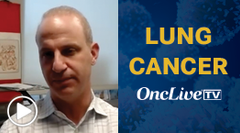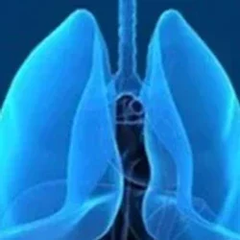
Dr. Levy on the Importance of Testing for KRAS Mutations in Lung Cancer
Benjamin P. Levy, MD, discusses the importance of testing for KRAS mutations in lung cancer.
Episodes in this series

Benjamin P. Levy, MD, associate professor of oncology and clinical director of Medical Oncology at Johns Hopkins Sidney Kimmel Cancer Center at Sibley Memorial Hospital, discusses the importance of testing for KRAS mutations in lung cancer.
Although KRAS alterations have been included on molecular panels for years, only recently have KRAS inhibitors demonstrated efficacy in targeting KRAS G12C mutations, Levy explains.
However, because these inhibitors are not yet approved by the FDA, patients who harbor KRAS G12C mutations are treated with immunotherapy alone or in combination with chemotherapy based on their PD-L1 expression, says Levy. KRAS mutations have immunogenicity, so immunotherapy is a rationale treatment approach to pursue without FDA-approved KRAS inhibitors, Levy adds.
To date, the oral KRAS G12C inhibitors sotorasib and adagrasib have demonstrated efficacy in treating patients with advanced stage, KRAS G12C–mutant lung cancer, says Levy. The response rates observed with these agents appear to be lower compared with other targeted therapies in lung cancer, Levy explains. As such, novel strategies with these agents in combination with immunotherapy, other oral agents, SHP2 inhibitors, or chemotherapy may enhance the efficacy of sotorasib and adagrasib in the KRAS G12C–mutated population, Levy says.
Additionally, data evaluating sotorasib and adagrasib in the frontline setting are needed for patients with treatment-naïve lung cancer, Levy says. From there, the field could assess whether combination approaches with KRAS G12C inhibitors could elicit durable responses with minimal toxicity in the newly diagnosed setting, concludes Levy.












































